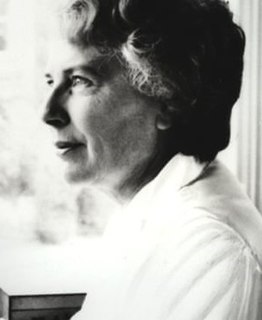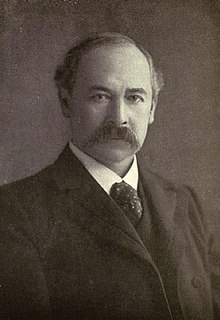A Quote by Martha Gellhorn
I tell you loneliness is the thing to master. Courage and fear, love, death are only parts of it and can easily be ruled afterwards. If I make myself master my own loneliness there will be peace or safety: and perhaps these are the same.
Related Quotes
When Christ said: I was hungry and you fed me, he didn't mean only the hunger for bread and for food; he also meant the hunger to be loved. Jesus himself experienced this loneliness. He came amongst his own and his own received him not, and it hurt him then and it has kept on hurting him. The same hunger, the same loneliness, the same having no one to be accepted by and to be loved and wanted by. Every human being in that case resembles Christ in his loneliness; and that is the hardest part, that's real hunger.
Solitude is a condition of peace that stands in direct opposition to loneliness. Loneliness is like sitting in an empty room and being aware of the space around you. It is a condition of separateness. Solitude is becoming one with the space around you. It is a condition of union. loneliness is small, solitude is large. loneliness closes in around you; solitude expands toward the infinite. loneliness has its roots in words, in an internal conversation that nodbody answers; solitude has it's roots in the great silence of eternity.
Often nothing keeps the pupil on the move but his faith in his teacher, whose mastery is now beginning to dawn on him .... How far the pupil will go is not the concern of the teacher and master. Hardly has he shown him the right way when he must let him go on alone. There is only one thing more he can do to help him endure his loneliness: he turns him away from himself, from the Master, by exhorting him to go further than he himself has done, and to "climb on the shoulders of his teacher."
Considering how many fools can calculate, it is surprising that it should be thought either a difficult or a tedious task for any other fool to learn how to master the same tricks... Being myself a remarkably stupid fellow, I have had to unteach myself the difficulties, and now beg to present to my fellow fools the parts that are not hard. Master these thoroughly, and the rest will follow. What one fool can do, another can.
A zealous disciple expressed a desire to teach others the Truth and asked the Master what he thought about this. The Master said, "Wait." Each year the disciple would return with the same request and each time the Master would give him the same reply: "Wait." One day he said to the Master, "When will I be ready to teach?" Said the Master, "When your excessive eagerness to teach has left you.
Look on each day that comes as a challenge, as a test of courage. The pain will come in waves, some days worse than others, for no apparent reason. Accept the pain. Little by little, you will find new strength, new vision, born of the very pain and loneliness which seem, at first, impossible to master.
The real master is only a presence. He has no intentions of being a master. His presence is his teaching. His love is his message. Every gesture of his hand is pointing to the moon. And this whole thing is not being done, it is a happening. The master is not a doer. He has learned the greatest secret of life: let-go. The master has drowned his ego and the idea of separation from existence itself.
I think you can find yourself in life perhaps not really being the master of your own life and it is within your own will and tenacity whether you switch the roles or not. So I think it has more to do with that, a person's individual will to be master or servant. I've been both in my own life and I prefer the former.
In the country, I stopped being a person who, in the words of Sylvia Boorstein, startles easily. I grew calmer, but beneath that calm was a deep well of loneliness I hadn't known was there. ... Anxiety was my fuel. When I stopped, it was all waiting for me: fear, anger, grief, despair, and that terrible, terrible loneliness. What was it about? I was hardly alone. I loved my husband and son. I had great friends, colleagues, students. In the quiet, in the extra hours, I was forced to ask the question, and to listen carefully to the answer: I was lonely for myself. [p. 123]







































